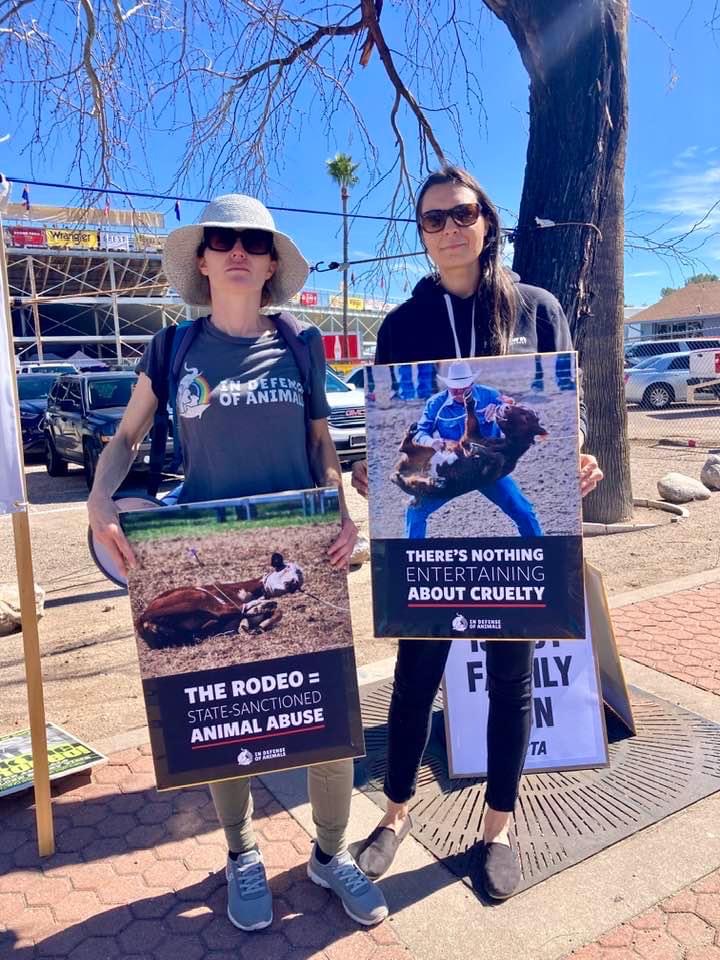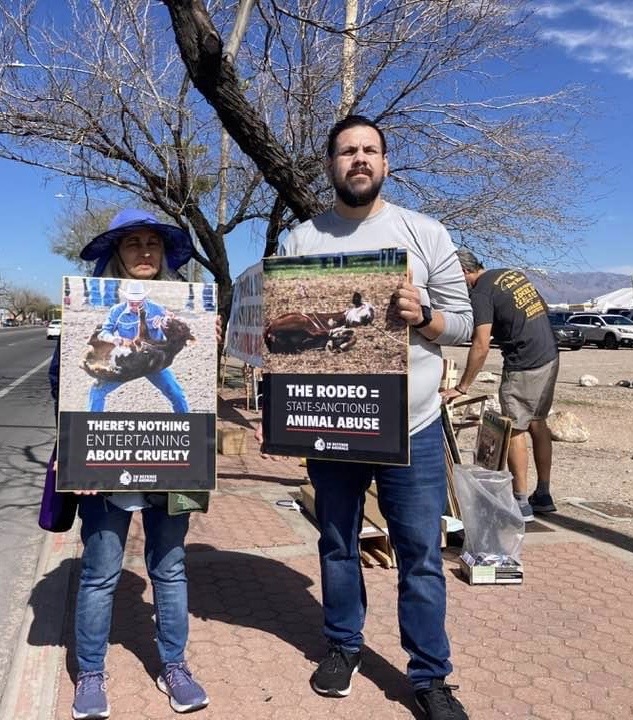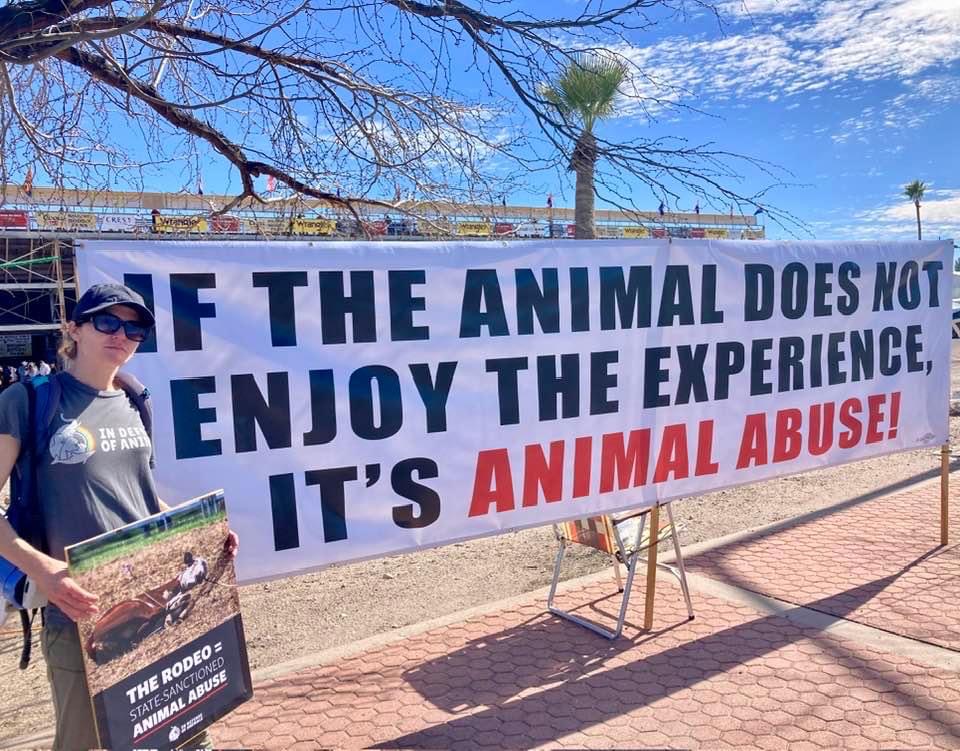Activists Protest Animal Cruelty & The Use Of Electric Shock Devices At The Tucson Rodeo
In Defense of Animals and Tucson-based Supporting and Promoting Ethics for the Animal Kingdom (SPEAK) protested animal cruelty at the Tucson Rodeo on its opening day, Saturday, February 17th, and on finals day, Sunday, February 25th. Twenty five activists gathered in front of the arena at the Tucson Rodeo grounds with signs and a megaphone to oppose this abusive spectacle and to raise awareness about the use of electric shocks on animals, which officials have been urged to ban.
Rodeos are inherently cruel, traumatizing, and injure animals for entertainment. Docile animals are provoked into action through pain, often inflicted using spurs, straps, and electroshock devices. Shockingly, animals used in the events are exempt from Animal Welfare Act protections.
For more than a decade, SPEAK and Showing Animals Respect and Kindness (SHARK) have obtained undercover videos revealing routine shocking of animals at the Tucson Rodeo. Hot-Shot electric shock devices are used to inflict pain on animals with 5,000-6,000-volts of electricity. Horses and bulls are regularly and intentionally given painful electric shocks as the chute opens to make them run and buck in fear.

Investigators have documented animals abused with Hot-Shots at the Tucson Rodeo every time they went to the arena.
Hot-Shot does not condone the use of its electric prods on horses and does not recommend any use in rodeos. “Any use for entertainment purposes is not something we support or condone.”
When workers were caught shocking the animals, in response, the Tucson Rodeo claimed that they only shock “problem animals,” or in “special circumstances,” despite evidence of routine abuse.

Attempts to conceal and downplay the abuse proves that the rodeo is aware of its mistreatment of animals.
Many rodeos have outlawed the use of electric shock devices, including the world’s largest rodeo, Cheyenne Frontier Days. This abusive practice has nothing to do with tradition, as rodeos existed long before shock prods were invented.
Nearly 16,000 people have signed In Defense of Animals’ letter urging Mayor Regina Romero and the Tucson City Council to ban electric shock devices.
“Rodeos are inherently cruel, subjecting animals to trauma and fear,” said Brittany Michelson, Campaign Specialist for Captive Animals at In Defense of Animals. “Shocks and straps force animals to flee and buck in fear which often causes injuries. There is nothing entertaining about animal cruelty. It is long past time for the rodeo to end.”

“With the rodeo in its 99th year, will it really take our community a full century to finally realize that there’s no such thing as a rodeo without animal cruelty? The real concern is not how many people are admitted to the event, but rather how many people in the arena admit to the animal abuse that they witness,” said SPEAK president Gary Vella.
Members of the public are encouraged to boycott the Tucson Rodeo and Take Action: HERE!
Content courtesy of In Defense of Animals. Help them continue to fight for animals, people, and the environment by making a donation HERE!